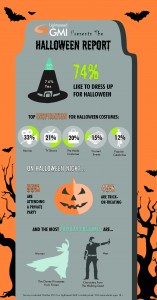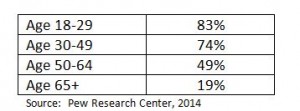Recently, we’ve been receiving inquiries from our clients around the world on the length of surveys. With increasing numbers of respondents accessing surveys via mobile devices, one of the key questions is how long is too long on a mobile device? To address this question Lightspeed GMI has conducted research in Australia, China, India, and the United States.
If you’re anything like me, you’re reaching for your mobile device as soon as the commercial break hits to answer a text, email, or simply refresh social media apps to see the latest and greatest. Well guess what, you are the most important part of how custom content works for sports advertising.
Topics: Mobile, Customized Advertising, Mobile Advertising
The rapid shift in survey data collection to mobile devices has caused researchers to scramble to ensure that surveys are compatible with these collection modes and that trends are not impacted. The focus of attention has been to find ways to simplify and shorten surveys so that they work reasonably well on a mobile device. What has been lost in this transition is that mobile devices offer new ways for us to provide input that may be more suitable than reading questions and typing answers.
Topics: Mobile, Voice Technology
Research & Results 2014 – Fighting Against Boring Surveys
In previous years, I attended Research and Results in Munich as a guest. This year, I was happy to present The Art of Bonsai Survey Design, one of many award winning papers from Jon Puleston, for Lightspeed GMI. The free entrance makes it possible for every market researcher to gain information and industry insights at Research & Results. And, every year it becomes more international, not just the exhibitors -- some lectures were presented in English with the option to wear a headphone and listen in German.
Topics: Mobile, Survey Design
Last week, Forbes reported that Halloween spending in the US is expected to be around $11.3 billion this year. With that kind of skin in the zombie game, we decided to turn to the Lightspeed GMI Mobile Panel for a pulse check on what tricks (and treats) consumers have up their sleeves for Halloween 2014.
According to change management theory (Burke, 2014) the nature of change can be either evolutionary or revolutionary. Evolutionary change consists of incremental changes and doesn’t necessarily change the whole structure or system. Revolutionary change is more radical and is often described as a jolt to the entire system.
Topics: Mobile







